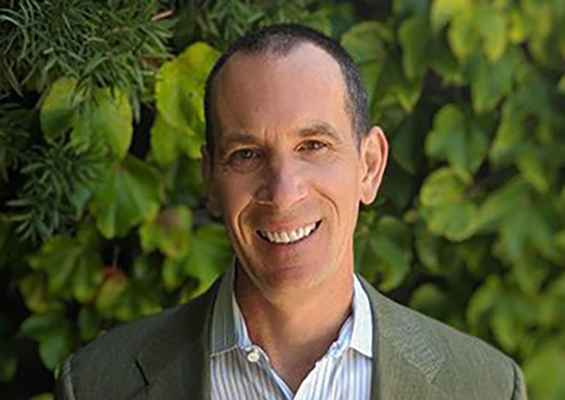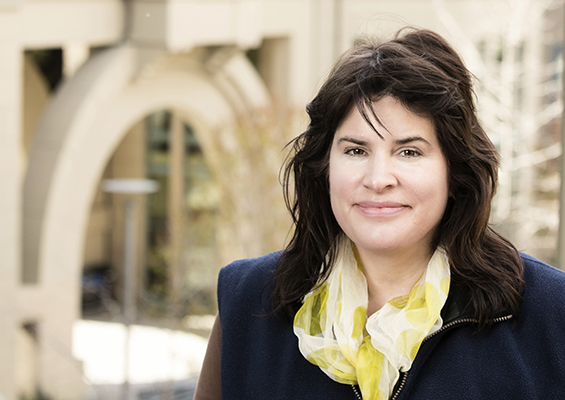Juliana Schroeder is a behavioral scientist whose research exploring how people make social inferences about others both informs—and is informed by—her MBA classes in Negotiations and Conflict Resolution.
In addition to her work in the Management of Organizations group at Haas, Juliana is affiliated with the Social Psychology Department, the Cognition Department, and the Center for Human-Compatible AI at UC Berkeley. The recipient of the International Social Cognition Network Early Career Award in 2018, she also has won awards for teaching excellence at Haas, was a Poets & Quants “40 under 40” top business school professor, and is a member of Club 6, an award given to Haas faculty who receive mean teaching evaluations greater than six on a seven-point scale.
How would you describe your teaching style?
I would call it ‘teaching through service.’ I think it is crucial to put students’ needs first. If anyone has difficulty with the material, the burden is on you as the professor to improve. You have to be willing to admit that you may have made a mistake or did not present a topic clearly enough.
We are all here by choice. I’ve chosen to teach and, because my class is an elective, the students have chosen to take it. We all have to respect those choices and make it worth each other’s while. My responsibility is serving the students and providing them with the learning outcomes they desire. The students’ responsibility is to care about the material, to be engaged and excited.
As long as one person in a conversation has a goal, that conversation is a negotiation."
What might a typical Negotiations class look like?
I make the class as interactive as possible. I typically present a mix of theory and research, practice, and tools in each session.
The research component provides empirically founded insights that research has shown to be effective. Learning by doing is essential. I can tell you the answer, but it doesn’t sink in until you have done it and practiced and adjusted the model to fit your needs. Finally, students take away a framework for every negotiation they are going to have in their life.
I love hearing from students that they are using the techniques and frameworks we explore. Not just in important career situations like salary negotiations, but also in negotiations with their roommates and family members.
Negotiation is such a useful topic. In truth, as long as any one of the people in a conversation has a goal, that conversation is a negotiation. And of course, we all negotiate with ourselves!
Tell us a bit more about how you integrate practice into your class.
The Negotiation class has 10 modules, each presented in a three-hour class. Each class has a case exercise. We start with a simple one-on-one negotiation, for example a buyer and a seller. My colleague Holly Schroth writes most of the cases and she excels in making them Berkeley-centric, like a Berkeley café owner negotiating with a supplier of yerba mate tea.
As the course progresses, the cases get more complex. Students encounter what happens when one side gets angry or lies or trust breaks down. The final exercise involves teams of 10 people who negotiate during the week between classes. The teams need to think about coalitions and office politics as they complete a high-stakes internal negotiation.
At the end of each exercise, we look at the outcomes in real-time using the iDecisionGames platform. We use the data displays to examine the team and individual outcomes and frame takeaways for the students to use later.
What are the rewards of teaching MBA students?
I love MBA students. They are giving up a lot to be in the program and are very committed. They are not afraid to engage deeply and thoughtfully. I also love that they bring their own work experiences to the table.
Our relationship is reciprocal. I stay in touch with students long after they graduate. We brainstorm on negotiations they encounter on the job or when they change jobs. And through them, I gain insights into how negotiations play out in the real world, which I can then bring back into the classroom.
The expertise and insight your professors bring helps deepen and enhance your MBA journey. By selecting a top school with top-notch professors, you maximize your experience.
Read more from the Take 5 with a professor series:
- Homa Bahrami explores agility and flexibility for enterprises and individuals
- Cameron Anderson can prove that being a jerk is not a good career strategy
- Laura Kray reveals the skill MBAs want in their core curriculum
- Kellie McElhaney talks equity fluency, courage, and vulnerability
- Lucas Davis shares hardest economic concept for MBA students to grasp
- Jenny Chatman gives three benchmarks of an effective organizational culture
- Jennifer Cohen talks equitable and inclusive leadership
- Clark Kellogg shares how he teaches design thinking, creativity, and innovation
- Dave Rochlin talks flipping the classroom: MBAs learn by doing
- Maura O'Neill says narrow-mindedness is the enemy of innovation
- Bill Pearce says most important trait of a successful marketer is empathy









